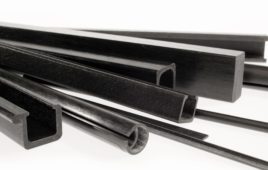First of their kind, self-assembling particle chains may serve as muscles for futuristic tiny robots. This breakthrough has Michigan Engineers pumped up. They have demonstrated the ability to extend and retract—flex—nanoscale colloidal fibers in response to an electric field. These shape shifting fibers could one day provide locomotion for microscopic robots in the medical and manufacturing fields.
When it comes to building muscles, typically bigger is better. Not in this case. Advanced computer models and sophisticated laboratory experimentation have delivered big results on a very small scale. Using self-assembly, Michigan researchers have developed shape-shifting colloidal fibers that can extend and retract in response to an electric field.
The first of their kind, these self-assembled fibers are actually tiny actuators with functionality akin to biological actuators found in muscle tissue. The team started with particles similar to those found in paint, with diameters of about a hundredth the width of a strand of hair. They stretched these particles into football shapes and coated one side of each football with gold.
In the right concentration of salinity, the particles attract one another, forming chains. When exposed to an alternating electric field, the chains seemed to add new particles indefinitely. The researchers hope to get the chains to swarm together, lift loads, move around, and do things that biological muscles do.
Filed Under: Materials • advanced




